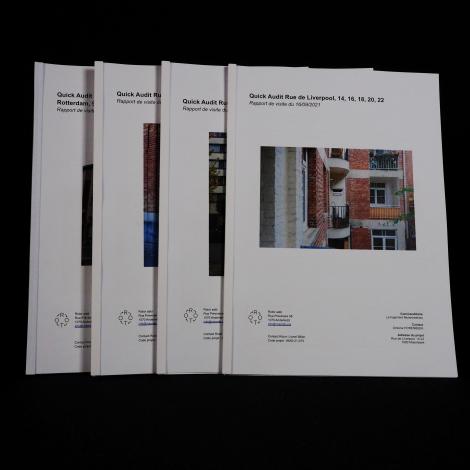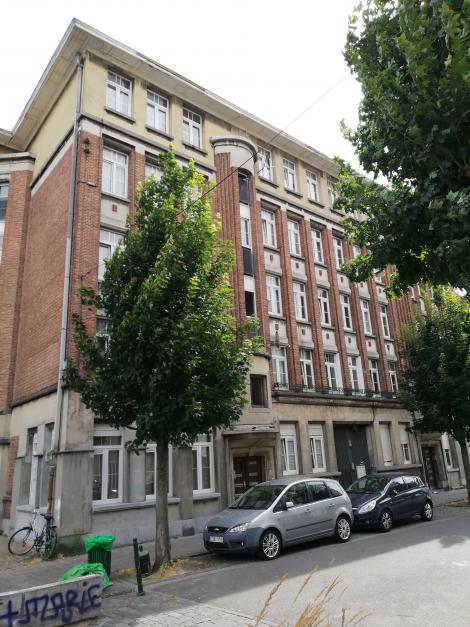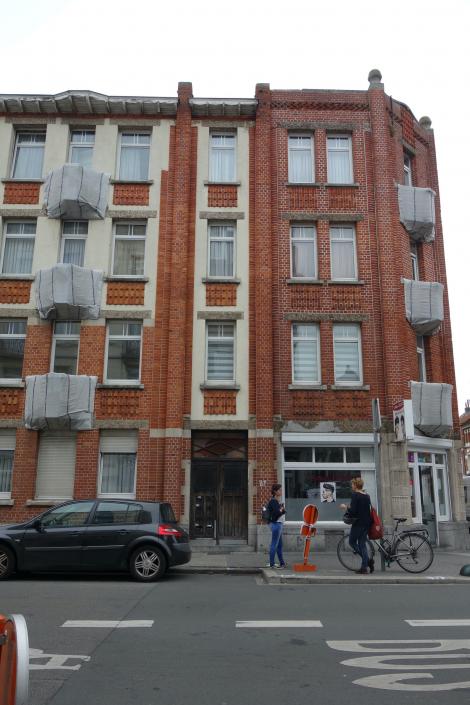Four quick audits for Molenbeek's Mastok project
Within the programs of the Contrat de Quartier Durable Autour du Parc de l’Ouest and the Contrat de Rénovation Urbaine Gare de l’Ouest, the municipality of Molenbeek has chosen to allocate part of the subsidies to the launch of a reuse initiative called “Mastok”. This program foresees the realization of an inventory for future renovation and demolition projects and the implementation of circular clauses in the specifications.
It is as part of this Mastok project that the municipality of Molenbeek asked Rotor to carry out a set of four “quick audits” of Molenbeek buildings. A quick audit highlights the elements with the highest potential for reuse on the basis of a swift visit. It enables the potential of the studied building to be known in advance and for a limited cost, which enables Molenbeek’s project leaders to develop a relevant circular strategy, tailored to the situation.
One of the difficulties of reuse is the question of storage, especially considering site-to-site reuse (where the dismantled elements are immediately transported to the project where they will be reintegrated) and in-situ reuse. A lack of space on the construction site itself quickly leads to logistical problems, storage rental and transportation costs. The Mastok project also aims to address this issue. The idea is to use a piece of land, currently unoccupied and belonging to the municipality, as a buffer storage space between the various projects underway in Molenbeek. To manage this flow, the municipality is currently looking to set up a software that would allow them to keep track of the materials in circulation via this circuit. By doing so, Mastok seeks to consolidate the circular initiatives undertaken by the municipality.
Rotor project team
Sophie Boone, Olivia Noël, Lionel Billiet, Stijn Colon, Beatrice Godon




